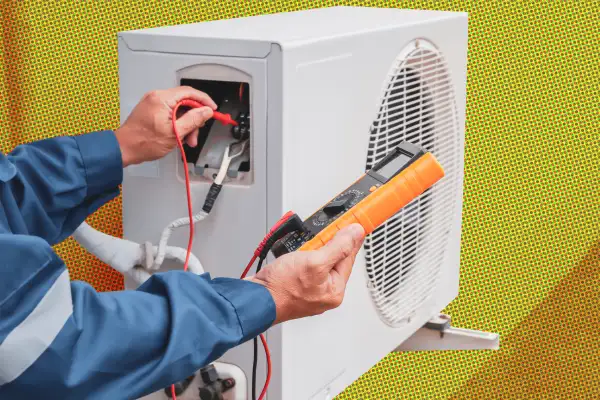HVAC Repair Costs Are Soaring. Can Home Warranties Help?

Repair costs for heating systems and central air conditioning are soaring, which may make the idea of paying for a home warranty more appealing to homeowners.
Data from Thumbtack on home repair and maintenance costs shows that, out of the 17 categories they tracked last year, inflation was highest for heating systems and air conditioning. Prices are up 31% year-over-year for heating and 24% for air conditioning.
HVAC systems are some of the most expensive components of Americans’ homes, and when they break down, the repairs can be costly, says Jack Erb, senior director of analytics at Thumbtack, a home services directory. Basic maintenance or simple repairs will usually run you a few hundred dollars, but more significant repairs or replacing parts can quickly add up to thousands. He says regular maintenance is crucial to reduce the risk of issues with your HVAC system.
It's also smart to think through your plan for covering the potential costs of repairing a heating or cooling system before the winter and summer seasons when HVAC systems are typically most needed.
Home warranties can protect against repair costs
Due to the rising costs, homeowners have an extra reason this winter to consider home warranties, which typically cover the systems.
Even with a home warranty, however, you're not guaranteed to be able to avoid repair costs entirely. Your plan will have payout maximums and you still have to pay service fees for every visit, in addition to the premium.
Home warranties aren’t legally considered insurance or regulated as such. However, they function similarly to insurance in that you pay a fee for the coverage (usually between $30 and $80 per month) plus a service fee or deductible that can range from $50 to $150 when you need a technician.
If your heating or AC system stops working correctly, and the repair is covered under the terms of your contract, the home warranty company will be responsible for sending a technician and paying for the work and any parts up to a certain dollar amount.
Home warranties cover most HVAC components, including (depending on the plan) thermostats, fuses, motors, condensers, compressors, ductwork and refrigerants.
Beyond HVAC systems and their components, home warranties often also cover kitchen appliances, water heaters, washers, dryers and more.
Should I get a home warranty?
The decision to purchase a warranty can be complicated and experts have mixed opinions. On the one hand, a good home warranty can provide protection against expensive repairs. For example, if your HVAC system fails, Erb says warranties can "help defray that cost" of dealing with it.
On the other hand, home warranties aren’t cheap, and their protection is limited, so some experts argue that you should instead save money each month in a savings account that you can tap into for home repairs.
Rob Terry, owner of Terry's A/C & Heating in Richmond, Texas, suggests shopping around with home warranty companies to see what they charge. If you don't see value in the warranty, consider setting aside roughly the same amount of money in an interest-bearing account to use for home repairs in the future. "That puts [you] in the driver's seat and it gives [you] all the control with decision-making," he says.
Home warranties have limitations: Companies can get out of paying for repairs if you haven't gotten all the maintenance required by your contract. Also, the cost of major service can exceed the policy's payout limits, which are sometimes only $2,000 or less. For reference, the cost of a furnace replacement often exceeds $5,000.
Some companies have been known to resist replacing aging systems even if they're past their prime, instead opting for band-aid repairs to get every last bit of life out of a system.
"Home warranty companies tend to be capitalizing on this and not really holding up to their end of the bargain," Terry says. The caliber of the technician the home warranty company sends may not be as high as what you could find if you were to choose your own technician, he adds.
When shopping for home warranties, look at the fine print to understand exactly what's covered by the plan. Make sure you understand which systems and appliances are covered and the circumstances when your home warranty company could deny your claims.
More from Money:
7 Best Home Warranty Companies of December 2023

